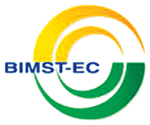 Now that BIMST-EC has been rechristened Bay of Bengal Initiative for Multi-Sectoral Technical and Economic Cooperation, it may have an even more unwieldy acronym.
Now that BIMST-EC has been rechristened Bay of Bengal Initiative for Multi-Sectoral Technical and Economic Cooperation, it may have an even more unwieldy acronym. Nepal never misses out an opportunity to sign international or regional agreements, especially as it opens new vistas for foreign junkets. This time, the prime minister refused to fly the national airline and went AWOL in Asia's fleshpot for three days.
Nepal is committing to more open regional cooperation, when back home on the ranch, the stock exchange staff just finished another round of strikes. We are seeking to open investments when stockbrokers are fighting to undercut each other for brokering commissions.
With WTO, Nepal did have enough support and time for preparation and so put up a good case. A laundry list of changes in legislation has been drawn up, and someday it will be enacted. In comparison, even people in the government were not sure about what kind of organism this BIMST-EC thing is. Other countries in the Bay of Bengal periphery seem similarly flummoxed. Apart from in Thailand, the summit got little press anywhere.
The Beed, however, understands that the agreement is a step ahead of even SAFTA and WTO. Bangladesh, Bhutan, India, Myanmar, Nepal, Sri Lanka and Thailand are really looking at opening up their economies. While WTO is focused on trade and SAFTA does take into consideration trade and services, BIMST-EC goes a step further in opening up investments too.
Great. So, our laws should allow a Thailand bank to operate in Nepal as well as Nepali banks to invest in India or Sri Lanka. If one reads between the lines of the charter documents and agreements, there are very few things the member countries will not be able to do. We can eliminate tariffs in the Free Trade Area or implement a BIMST-EC visa.
For Nepal, this is an opportunity to kick start investment. An outside push has always been necessary to create the right laws or institutional framework in Nepal. But private sector preparedness to face an onslaught of reforms is still poor. In the past, the private sector has been more obsessed with pushing protectionism than self-reform. Thai products have lower cost of production and economies of scale, Indian telecom and banking services are comparable to the best in the world, Sri Lankan tea has really captured global markets, Bangladesh garments have the lowest cost in the region and Myanmar has an abundance of natural resources. What does Nepal have to offer apart from a swelling workforce?
We will see a few more conferences and workshops, parachute consultants will descend upon us in the coming months to share experiences of Botswana or Ecuador. And our apex private sector bodies will try to rope in some donor assistance to understand the impact of what all this will have on us. The crux, however, will lie in taking advantage of the free trade agreement and this time the private sector should take the lead.



